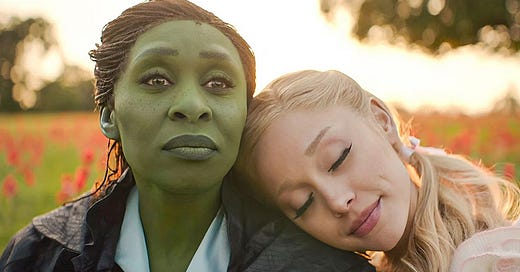[Yikes! The Academy Awards are Sunday! I’m an Oscar nerd and I have less than a week to finish up the Best Picture nominees! Will I make it? Reviews of A Complete Unknown, The Brutalist, Conclave, Nickel Boys, Emilia Pérez, and The Substance are already up.]
All musicals are ridiculous, every bit as ridiculous as any cynic will reflexively tell you the…
Keep reading with a 7-day free trial
Subscribe to Roy Edroso Breaks It Down to keep reading this post and get 7 days of free access to the full post archives.



